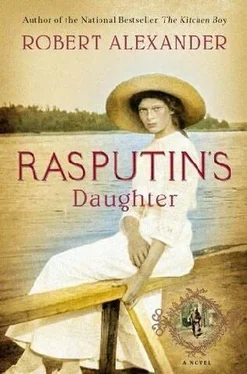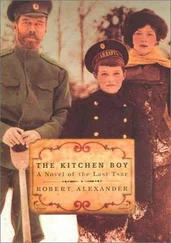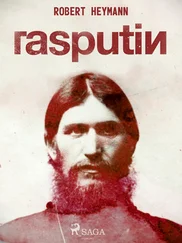People didn’t understand. Or what they did surmise was wrong. I myself had received a note from the Empress written in such a florid manner, for that was her style. She was all emotion, all soul, and she gave herself completely to those she cared for. Those were the exact words the Empress wrote to my father-her Father Grigori-but no one understood where the words came from or what they truly meant for one simple reason: No one knew her secret, a secret that affected everything in our country, right down to the soft snowballs formed and handed to me that winter afternoon at the Aleksander Palace.
In fact, hardly anyone realized there was one, a state secret of such magnitude that it was carefully guarded even from many princes and princesses of the royal blood. I was one of the very few privy to it, and only then because I knew of my father’s activities. Unbeknownst to almost everyone in the nation, there was an explanation for the imperial family’s withdrawal from the whirling social world of the capital, there was logic behind their decision to retreat to the Aleksander Palace in Tsarskoye Selo and live there in near isolation, and there was most definitely a reason for the Empress’s lack of laughter and perpetually sad appearance.
It was that the Heir Tsarevich Aleksei Nikolaevich suffered from the English disease. He was a bleeder. And the Tsar and Tsaritsa, and even their most trusted advisers, had decided that no one should know that the future of the nation was in peril not just from the Germans but from a simple bruise or bump, any number of which most little boys encountered on any given day. It all came down to blood-royal blood, to be specific-that had been passed from Queen Victoria to her favorite granddaughter, a minor German princess who became our Empress Aleksandra Fyodorovna, and who in turn passed the condition to her first-born boy, Heir to the Imperial Throne of All the Russias.
The only time I ever heard Papa speak against the monarchy was when he had groused that we simple people took better care in breeding our pigs back home-where everyone knew you needed fresh stock from other villages to keep the herd strong and healthy-than these fancy nobles did in breeding themselves. But it was in this, the inability of the Heir’s blood to clot, that lay the true nature of my father’s extraordinary bond with our Empress.
Less than an hour later a pair of heavy black iron gates opened before us and the royal limousine carried us once again to the very steps of the Aleksander Palace. I thought of the boy’s pain, of the Empress’s misery…and of the terrible things constantly said about her. Even her own mother-in-law, the Dowager Empress Maria Fyodorovna, had called her a traitor, first because she had given birth to four daughters in a row and then because she had birthed such a sickly boy. To make it all worse, the court of the Dowager Empress was filled with evil gossips, highborn personages who spread the most wicked stories to all the courts of all the grand dukes and beyond. There was even tittle-tattle that Aleksandra Fyodorovna had a secret telegraph cable stretching from the mauve boudoir all the way to her native Germany and the offices of her cousin, Russia’s sworn enemy, Kaiser Wilhelm, with whom we had been at war for so long. Every time I heard that I shuddered, for I couldn’t help but think of the poor Marie Antoinette, daughter of the Austrian monarch, whom the French had labeled the Austrichienne, the Austrian dog.
But none of the incendiary stories they told about the Empress was true. Not one. And yet virtually every Russian believed them because the stories had been told and retold, heard and heard again so often, that eventually no one doubted their authenticity. There were supposed eyewitnesses everywhere.
Russia had long been an aria in search of a tragedy, and as Papa and I clambered out of the deep seats of the Delaunay-Belleville limousine and up the steps, I wondered if my father would be able to forestall the finale of the doomed opera. Or were we too late? I couldn’t tell, not by the tears rolling down the big round cheeks of Madame Vyrubova, who greeted us once again at the top of the steps. Forgetting the frost, today she simply stood there, wearing a gray dress and leaning heavily on crutches.
“Thank you for coming, Father Grigori,” she said, profusely kissing Papa’s hand. “The boy, he…he-”
“Yes, I know,” said Father, with a godly authority. “He’s still with us.”
“And-”
“This I know as well. Batushka,” the Dear Father, meaning the Tsar, “has returned home.”
“Not more than ten minutes ago.”
“Eto xhorosho.” Good.
How my father knew these things, I didn’t know, yet I knew he was right, for with each step an aura seemed to grow more clearly around him. Was it the cod? Had the endless amounts of fish he consumed made his soul so clear, his body so pure, that he had indeed become a heavenly vehicle? Or had he been purified by his session with the prostitute Anisia?
When we reached the top of the steps, Madame Vyrubova glanced nervously at me and said to my father, “Father Grigori, I think it’s better if the child is returned home. You know how the Empress doesn’t-”
“I’m still exhausted from the other night,” said Papa firmly. This afternoon and evening will be long and hard…my daughter stays. She will attend to me.”
“Of course, Father,” the most powerful courtier in the nation replied, submissively bowing her head. “It is as you wish.”
“It is as is needed.”
Minutes before we’d pulled up to the gates, Papa had clasped my hand and told me the details of the other night when we’d come so late and I had been turned away. Aleksei had come down with a chill and sneezed. Such, of course, was the nature of any cold, only the boy had started to bleed profusely from the nose. Compresses had been applied, to no avail. The doctors had been called in and the boy’s nose was cauterized, which hadn’t done anything but elicit screams of pain from Aleksei Nikolaevich, who was never given the likes of morphine. As always, the best and finest doctors of all Europe hadn’t been able to do a thing, so finally Papa had been summoned. And only many hours of Papa’s prayers beside the Heir’s bed had slowed and finally stopped the bleeding.
“I can see the boy’s suffering is worse than it was the other day,” Papa muttered, as we entered the palace. “I do not know what I can do for him, for of course it is up to the will of God, but I shall try my best.”
Once again we hurriedly followed Madame Vyrubova through the large doors, past the guards and the reception desk, and into the private apartments of the royal family. Rather than proceed down the long central hall with its roll of Oriental carpet, Madame Vyrubova, hobbling on her crutches and with her gray dress trailing on the floor, took us into the small wooden elevator on the left. In silence we rode up to the second floor, the children’s floor, where we were taken down a long empty corridor. I noted that the doors on the right were all shut tight, for these were the rooms of the Tsaritsa’s personal maids, who surely had been told not to set foot outside their chambers.
Coming to a double door on the left, we turned into the children’s playroom, where years earlier I had been brought to play with the Tsar’s third daughter, Maria Nikolaevna, who was my age. Now, upon entering the large room, we found not the tepee, the tom-toms, the toy dog on wheels, or even Aleksei’s clockwork train, of which he was so proud, but rather a busy cluster of men gossiping sternly among themselves. There was also a man, his back to us, who was sobbing quietly but furiously as he leaned against the tall green tile stove on the far wall. As I quickly trotted after Papa and Madame Vyrubova toward another door, we passed a group of men-a bevy of doctors and specialists-who glared at us and practically spit on Rasputin. But Papa didn’t notice, so I tried to ignore them too. All that mattered, all that my father was focusing on, was the shrieking from the next room.
Читать дальше












